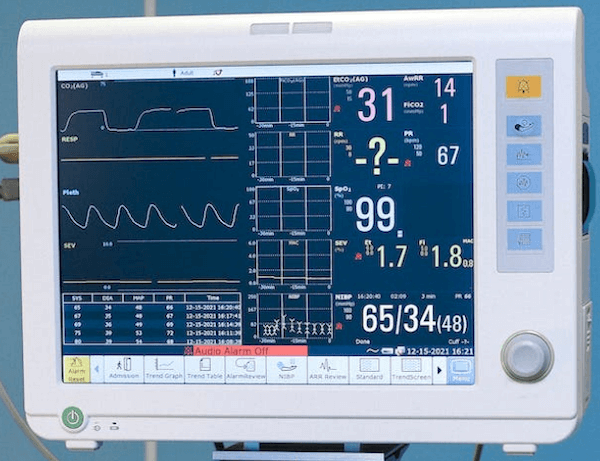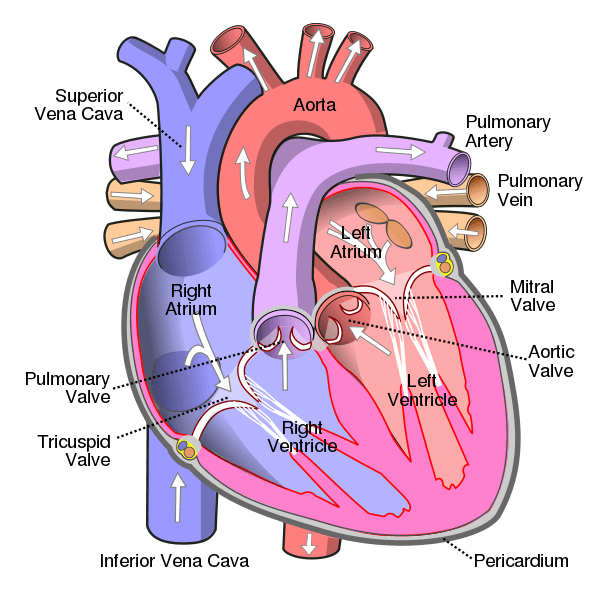Pediatric Myocarditis: The importance of early detection & Tips for Risk Reduction
Pediatric myocarditis is a serious condition that affects the heart muscle in children. It is an inflammation of the heart muscle that can lead to significant damage and even death if not diagnosed and treated early.
Understanding the signs and symptoms, as well as the risk factors and prevention methods, is crucial for parents to ensure the health and well-being of their children.
We have invested significantly in our Cardiology Clinic in Dubai to ensure that our team of cardiologists and pediatric cardiologists have the latest in modern imaging and scanning technology to help make the right diagnosis for every patient.
What is Myocarditis?
Myocarditis is a medical condition characterized by inflammation of the heart muscle, also known as the myocardium.
The myocardium is the muscular layer that surrounds the heart chamber and is responsible for the contraction and relaxation of the heart, which allows for the pumping of blood throughout the body.
When the myocardium is inflamed, it can lead to a variety of symptoms and complications that can have a significant impact on the individual's health.

How Does Myocarditis differ in Children & Adults?
Myocarditis in children or pediatric myocarditis is different to myocarditis in adults in several ways. In children, myocarditis is often caused by viral infections, while in adults it is typically caused by a combination of viral and other factors such as autoimmune diseases.
Additionally, children are more likely to experience sudden cardiac death due to myocarditis, as their hearts are still developing and may not be able to handle the inflammation as well as adults.
The myocardium, which is the muscular layer that surrounds the heart chamber and is responsible for the contraction and relaxation of the heart, is still growing and developing in children.
The immune system of children is not fully developed, and they may not be able to mount as robust of an immune response to an infection or inflammation as adults do, which can make them more susceptible to complications.
Children's hearts also have a higher rate of blood flow per unit of body weight than adults, which means that any damage to the heart can have a greater impact on their overall cardiac function.
Children are also less able to compensate for damage to the heart muscle than adults. This is because, as mentioned, the myocardium in children is still developing and may not have the same ability to adapt and compensate for damage as an adult's myocardium.
WORRIED ABOUT HEART HEALTH?

Symptoms of Myocarditis in Children?
Symptoms of pediatric myocarditis can vary depending on the severity of the inflammation and the individual's underlying health condition.
Common symptoms include chest pain, fatigue, shortness of breath, and irregular heartbeats. In some cases, individuals may experience a fever or flu-like symptoms. In severe cases, myocarditis can lead to heart failure, arrhythmias, and even sudden cardiac death.
MEET OUR CARDIOLOGY TEAM
- All
- Cardiac Surgery
- Cardiology
The long term impacts of pediatric myocarditis if left untreated
Pediatric Myocarditis can lead to significant morbidity and mortality if left untreated. This can be especially concerning in the pediatric population, as myocarditis can lead to long-term impacts on heart function.
It is important for parents to understand the potential consequences of untreated myocarditis and seek prompt medical attention if their child is suspected of having this condition.
The immune response is a crucial factor in the development of myocarditis. If left untreated, the immune response can cause damage to heart tissue, leading to decreased heart function and abnormal heart rhythms.
This can be especially concerning in cases of viral myocarditis, where the immune response can be exacerbated by the presence of a viral infection. In many cases, children presenting with suspected myocarditis may be referred to an emergency department for clinical findings and further evaluation.
Diagnosing myocarditis in children can be challenging, as many of the symptoms are non-specific and can be indicative of other conditions. In some cases, myocarditis may be diagnosed based on a combination of clinical findings, diagnostic testing, and the results of a biopsy of heart tissue.
Ventricular function, the ability of the heart to pump blood effectively, is a key factor in the diagnosis of myocarditis. A decrease in ventricular function can be a sign of myocardial inflammation, and may indicate the need for further diagnostic evaluation.
If left untreated, myocarditis can lead to progressive heart failure, which is characterized by a gradual decline in heart function. In some cases, myocarditis can also lead to sudden death, especially in cases of fulminant myocarditis, a severe form of the disease. In addition, myocarditis can also increase the risk of atrial arrhythmias, or abnormal heart rhythms, which can be life-threatening.
In many cases, myocarditis can be treated with immunosuppressive therapy, which is aimed at reducing the immune response and preventing further damage to the heart. Intravenous immunoglobulin may also be used to help fight infection and reduce inflammation. In severe cases, children may require treatment in an intensive care unit, and in some cases, extracorporeal membrane oxygenation may be necessary to support heart function.

It is important to seek prompt medical attention if your child is suspected of having myocarditis, as early diagnosis and treatment can improve outcomes and prevent long-term impacts on heart function. A careful diagnostic evaluation, including a chest x-ray and the measurement of cardiac troponin, a marker of heart damage, can help to diagnose myocarditis. In some cases, an endomyocardial biopsy may be necessary to obtain a definitive diagnosis and evaluate the extent of myocardial damage.
DIAGNOSIS OF PEDIATRIC MYOCARDITIS
Diagnosis of pediatric myocarditis typically involves a combination of physical examination, laboratory tests, and imaging studies. A physical examination may reveal signs such as a rapid or irregular heartbeat, as well as an enlarged or tender heart. Laboratory tests such as blood tests and cardiac enzymes can also help to detect myocarditis. Imaging studies such as an electrocardiogram (ECG) and echocardiogram can also be used to detect myocarditis.
Treatment for myocarditis typically involves addressing the underlying cause, if known, and managing symptoms to prevent complications. In cases where a viral infection is the cause, antiviral medications may be prescribed. Corticosteroids and immunosuppressant medications may also be used to reduce inflammation and prevent further damage to the heart muscle. In some cases, individuals may require hospitalization for close monitoring and supportive care.
It is important to note that myocarditis can have a significant impact on an individual's health and well-being, and early detection and treatment is crucial to prevent complications. Individuals who experience symptoms of myocarditis should seek medical attention as soon as possible to ensure proper diagnosis and management.
FREQUENTLY ASKED QUESTIONS
ABOUT MYOCARDITIS
This refers to a condition in which the heart muscle becomes inflamed due to a viral infection.
It can cause the heart to beat abnormally and can lead to decreased function of the heart. In children, symptoms may include fatigue, chest pain, and shortness of breath. If your child is experiencing these symptoms, it is important to seek medical attention right away.
A trained cardiologist specialising in pediatric population will be the best placed physician to be able to diagnose and treat the condition, which can help to prevent any further complications.
Ventricular dysfunction refers to an issue with the heart's ventricles, which are the two lower chambers that pump blood. In this condition, the ventricles are not able to pump blood effectively, which can lead to problems such as heart failure, irregular heartbeats, or difficulty with circulation.
If your child has been diagnosed with ventricular dysfunction, it is important to work closely with their healthcare provider to monitor their condition and develop a treatment plan to manage their symptoms.
This may include medications, lifestyle changes, or procedures such as a heart pump or transplant.
Fulminant myocarditis is a rare but serious condition that affects the heart muscle, causing it to become inflamed and to stop functioning properly.
This can result in sudden cardiac arrest, which is a medical emergency. Parents who are concerned that their child may be suffering from fulminant myocarditis should seek medical attention as soon as possible.
A cardiologist will be able to diagnose the condition and recommend appropriate treatment. Early recognition and prompt treatment are critical for the best outcome in children with fulminant myocarditis.
Cardiac dysfunction in pediatric population refers to any problem with the heart's structure or function. The major types of cardiac dysfunction affecting children are:
Congenital heart defects: abnormalities in the heart's structure present at birth.
Arrhythmias: problems with the heart's rhythm.
Heart failure: inability of the heart to pump blood effectively.
Cardiomyopathies: diseases of the heart muscle.
Congestive Heart Failure (CHF) refers to a condition where the heart is unable to pump blood effectively, causing fluid buildup in the body. In children, this can result in symptoms such as fatigue, shortness of breath, and swelling in the legs and ankles.
CHF can be caused by various underlying conditions, including heart defects present at birth, heart muscle damage, or infections.
Early diagnosis and treatment are essential to manage CHF and prevent progression of the condition.
Acute myocarditis in children refers to inflammation of the heart muscle that occurs suddenly and typically lasts for a short period of time.
This type of myocarditis can cause symptoms such as chest pain, shortness of breath, and abnormal heart rhythms.
In some cases, acute myocarditis may resolve on its own, while in other cases, medical treatment may be required.
The diagnosis of acute myocarditis in children is based on a combination of clinical presentation, medical history, and test results.
The use of cardiac magnetic resonance imaging for pediatric myocarditis is growing. The technology provides tissue characterization, structural and functional data.
Learn more by reading this study in the Journal of the American College of Cardiology (j am coll cardiol)
Dilated cardiomyopathy is a condition in which the heart becomes enlarged and weakened, leading to decreased ability to pump blood efficiently.
In children, this can result in symptoms such as fatigue, shortness of breath, and swelling in the legs and ankles.
Dilated cardiomyopathy can be caused by a variety of underlying factors, including genetic predisposition, infections, or heart muscle damage. Early diagnosis and treatment are important to manage the symptoms and prevent progression of the condition.
Myocardial necrosis refers to the death of heart muscle cells, which can be caused by various underlying conditions. This type of cell death can result in damage to the heart muscle and potentially lead to heart failure.
Myocardial necrosis can be caused by a variety of factors, including lack of blood flow to the heart, heart attack, infections, and certain medications.
Early diagnosis and treatment are important to prevent further heart damage and manage any associated symptoms.
In some cases, acute myocarditis leads to long-term heart problems in children, especially if not properly diagnosed and treated.
This may include the development of heart rhythm disturbances, weakened heart function, and an increased risk of heart failure.
It is also possible for acute myocarditis to trigger the development of other heart conditions, such as dilated cardiomyopathy, which is a condition that causes the heart to become enlarged and weakened.
It is important for children with a history of acute myocarditis to be closely monitored by a healthcare provider to ensure that any potential complications are detected and managed promptly.
Sinus Tachycardia is a type of heart rhythm disturbance characterized by a rapid heart rate that originates from the sinus node, the normal pacemaker of the heart.
In children, sinus tachycardia may occur in response to physical activity, stress, or certain medications.
It is generally considered a benign condition and often resolves on its own.
This is a type of medical treatment that suppresses the immune system. This can be done to prevent the body's immune cells from attacking healthy tissue, as seen in autoimmune diseases, or to prevent rejection of transplanted organs.
In the case of myocarditis, a viral or autoimmune attack on the heart muscle, immunosuppressive therapy may be used as a treatment option in some pediatric patients.
This helps to reduce inflammation and prevent further myocardial injury & damage to the heart.
The use of immunosuppressive therapy in myocarditis can vary based on the underlying cause and severity of the condition.
